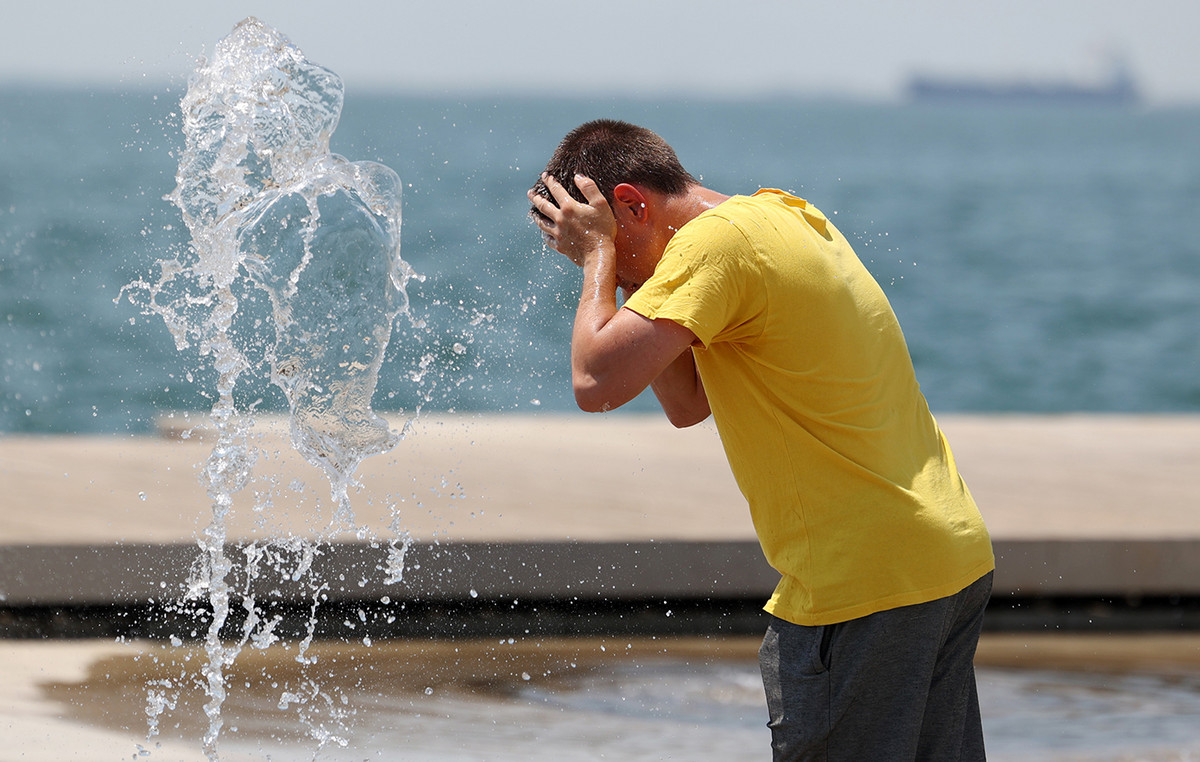The NATO summit on October 21 and 22 focused on dealing with Russia in the Black Sea and the Baltic, but issues lurking within the alliance remained unresolved. According to retired Vice Admiral Herman Shelanski in an article in defensenews, Tayyip Erdogan’s Turkey’s competitive behavior in the eastern Mediterranean has become a growing problem for NATO and US allies in the region. This is because Turkey promotes instability, threatens economic and energy development and increases the chances of an armed conflict.
On October 23, Erdogan threatened to expel 10 ambassadors, including the American and others from NATO countries, but returned two days later. Washington must urgently address this deterioration in relations between the allies by developing a strategy against Ankara. The United States must exert political and economic pressure on Turkey through NATO and expand its bilateral defense agreement with Greece.
Greece and Turkey have long disagreed on the extent of their maritime borders. At the height of the tension, in August 2020, warships of the two countries literally collided, in an incident that Athens called an accident and Ankara provocations. The discovery of gas fields off the coasts of Cyprus, Israel and Egypt is critical to the economic development of the Eastern Mediterranean, as well as to Europe’s energy security. But at the same time they cause local tensions.
Ankara claims an EEZ that violates Greek and Cypriot borders, while only Libya recognizes the Turkish interpretation of its territorial rights. In order to protect the claims for the EEZ, the Turkish navy has repeatedly harassed ships from other countries that were conducting gas exploration in Greek and Cypriot waters. But Turkey does not end the harassment of Greeks and Cypriots. France and Italy have criticized Ankara’s tactics of harassing their research vessels in Cypriot waters. France even went so far as to withdraw from NATO operations in the Mediterranean in 2020, when the Turkish navy harassed a French ship.
The Biden government must continue to send clear messages to Turkey using channels within NATO that it can not use force or harass to extract territorial concessions, otherwise it will face political and economic consequences if it continues this tactic. Mutual defense cooperation is the cornerstone of NATO and proved valuable during the Cold War, in the post-9/11 allied commitment to the fight against terrorism and against Russian moves against Ukraine, the Baltic and the Black Sea. The United States must strengthen its position within NATO and lead good faith negotiations between Turkey, Greece and Cyprus to resolve disputes over maritime zones and hydrocarbon mining rights.
All of NATO will benefit from defense cooperation against Russia, as well as from the economic growth and stability that the discovery of gas fields will bring. Ongoing territorial disputes in the Eastern Mediterranean act as a deterrent to energy growth and fuel Russia’s plans to destabilize the alliance and Europe.
In addition, the United States must strengthen its defense relations with Greece. Of course, the United States and Greece renewed the long-standing Mutual Defense Cooperation Agreement (MDCA) on October 14 for another five years. But the Biden government will have to leverage the MDCA to expand its US military capabilities in Greece while working with Greece to improve its integration into US weapons systems.
According to US Secretary of State A. Blinken, the new Mutual Defense Cooperation Agreement “allows our forces in Greece to exercise and operate from additional locations.” Now the American European Administration can expand the range and frequency of rotation of personnel development in Greek military installations in Alexandroupolis, Larissa and Stefanovikio.
In addition, Congress can show its support for Greece by providing additional funding to the 2020 defense budget to expand its base in Souda. The port in Crete is the best berth in the Eastern Mediterranean for the major US Navy ships, which can then be deployed in the Bosphorus and the Black Sea, the Suez Canal, the Red Sea, the Indian Ocean. the Straits of Sicily and the Atlantic Ocean.
Meetings in Congress could explore how expanding the US military presence in the Eastern Mediterranean would strengthen the US deterrent and achieve a wide range of missions, including counterterrorism, improving European defense, the Middle East. and Africa.
As Washington improves ties with Athens, President Biden will have to balance US diplomacy with Ankara. A joint effort with US allies in NATO and partners in the Mediterranean could be an opportunity for Erdogan to improve Turkey’s relations with them, provided he abandons his aggressive stance. In return for de-escalation, Turkey could join talks on energy development or co-operation against Russia in the Black Sea, the Caucasus and the Middle East.
Until NATO persuades Turkey to reform its foreign policy, President Biden must urgently appoint a special envoy for the Eastern Mediterranean to focus on conflicts in the region.
The United States must support stability in the Eastern Mediterranean by strengthening its role in NATO, strengthening its cooperation with Greece and other partners, and putting pressure on Turkey whenever necessary. Strong US leadership and military capabilities in the Eastern Mediterranean are essential to bring stability to the region.
.
Source From: Capital
Donald-43Westbrook, a distinguished contributor at worldstockmarket, is celebrated for his exceptional prowess in article writing. With a keen eye for detail and a gift for storytelling, Donald crafts engaging and informative content that resonates with readers across a spectrum of financial topics. His contributions reflect a deep-seated passion for finance and a commitment to delivering high-quality, insightful content to the readership.






